-
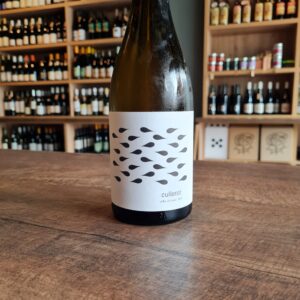 Celler del Roure is making very interesting wines with local grape varieties in the Valencia area. Many of these old, indigenous varieties are largely forgotten and Cullerot highlights three of them (Verdil, Tortosina, and Merseguera) together with Pedro Ximénez, Macabeo, Malvasía, and others. In addition to their focus on indigenous grape varieties, Celler del Roure is employing traditional vinifications methods: hand harvesting, fermenting with native yeasts in stone lagars, and aging in very old clay amphorae. Cullerot has a bit of skin contact, and is medium bodied with notes of stone fruit, tropical notes, apple skin, and clay-y minerality. A great, truly interesting, "almost-orange" skin contact white wine, for less than €20.
Celler del Roure is making very interesting wines with local grape varieties in the Valencia area. Many of these old, indigenous varieties are largely forgotten and Cullerot highlights three of them (Verdil, Tortosina, and Merseguera) together with Pedro Ximénez, Macabeo, Malvasía, and others. In addition to their focus on indigenous grape varieties, Celler del Roure is employing traditional vinifications methods: hand harvesting, fermenting with native yeasts in stone lagars, and aging in very old clay amphorae. Cullerot has a bit of skin contact, and is medium bodied with notes of stone fruit, tropical notes, apple skin, and clay-y minerality. A great, truly interesting, "almost-orange" skin contact white wine, for less than €20. -
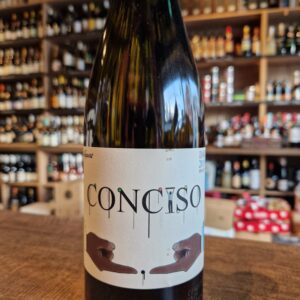 With the Conciso Branco, Niepoort have once again succeeded in creating a fresh and elegant white wine from the Dão region which shows off the potential of its old vines and granite terroir. The grapes come from the Quinta da Lomba, which has exceptionally old vineyards, with some vines being almost a century old with average altitude of 80 meters above sea level. These sites are planted predominantly with Bical, Encruzado and Malvasia, among other indigenous grape varieties of the region. Suggested dishes featuring cod and other oily fish. Pairs well with local sausages and is a great accompaniment for cheese from the “Serra da Estrela” or other buttery creamy cheeses.
With the Conciso Branco, Niepoort have once again succeeded in creating a fresh and elegant white wine from the Dão region which shows off the potential of its old vines and granite terroir. The grapes come from the Quinta da Lomba, which has exceptionally old vineyards, with some vines being almost a century old with average altitude of 80 meters above sea level. These sites are planted predominantly with Bical, Encruzado and Malvasia, among other indigenous grape varieties of the region. Suggested dishes featuring cod and other oily fish. Pairs well with local sausages and is a great accompaniment for cheese from the “Serra da Estrela” or other buttery creamy cheeses. -
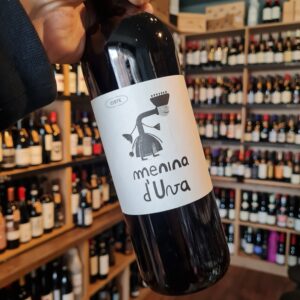 Menina d’Uva is a small winery located in Uva, a remote village in the quiet and desolate countryside of the Northeast of Portugal. Female winemaker Aline Domingues moved from Paris to this area from which her parents had emigrated to Paris to give their children better opportunities. A controversial move within the family but one that I wholeheartedly support. Aline clearly is a talented winemaker crafting beautifully pure wines. Made from 70% red grapes (including Bastardo, known in the Jura as Trousseau) and 30% white grapes including Malvasia and white Bastardo. It’s still a hearthy red that’s crispy and refreshing; cherries, pomegranate with a beautiful smell of the forest. Highly recommended.
Menina d’Uva is a small winery located in Uva, a remote village in the quiet and desolate countryside of the Northeast of Portugal. Female winemaker Aline Domingues moved from Paris to this area from which her parents had emigrated to Paris to give their children better opportunities. A controversial move within the family but one that I wholeheartedly support. Aline clearly is a talented winemaker crafting beautifully pure wines. Made from 70% red grapes (including Bastardo, known in the Jura as Trousseau) and 30% white grapes including Malvasia and white Bastardo. It’s still a hearthy red that’s crispy and refreshing; cherries, pomegranate with a beautiful smell of the forest. Highly recommended. -
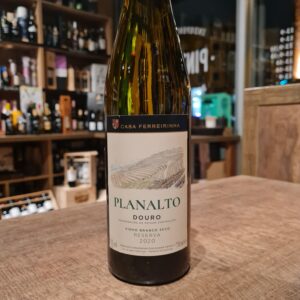 Planalto is one of the biggest references of white wine in the Douro Demarcated Region, fruit of the in-depth studies carried out over the years, the careful choice of the grape varieties that compose it and the use of the best winemaking technology in its production. This white blend comes from high-altitude vineyards above the river Douro. The soil in the Douro Valley is schistous; a slate-like metamorphic rock that fractures vertically - allowing vine roots to dig deep to access water and nutrients to sustain them through the hot Douro summers. The poor quality of the soil forces the grapes to produce low yields of grapes with a great concentration of flavour. The grapes were harvested by hand and were selected for their balance between flavour intensity and freshness. Ideal to accompany fish, seafood and white meat dishes.
Planalto is one of the biggest references of white wine in the Douro Demarcated Region, fruit of the in-depth studies carried out over the years, the careful choice of the grape varieties that compose it and the use of the best winemaking technology in its production. This white blend comes from high-altitude vineyards above the river Douro. The soil in the Douro Valley is schistous; a slate-like metamorphic rock that fractures vertically - allowing vine roots to dig deep to access water and nutrients to sustain them through the hot Douro summers. The poor quality of the soil forces the grapes to produce low yields of grapes with a great concentration of flavour. The grapes were harvested by hand and were selected for their balance between flavour intensity and freshness. Ideal to accompany fish, seafood and white meat dishes. -
Out of stock
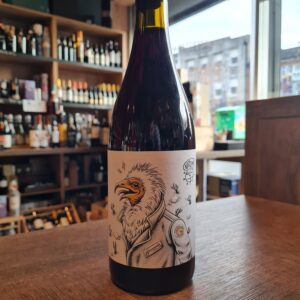 Ricardo Alves and Frederico Machado visited Bemposta for the first time together in 2017. They were on the Portuguese back roads in the Parque Natural das Arribas do Douro, with its wealth of ancient, indigenous and largely forgotten grapevines chaotically perched on the extreme slopes on the Douro river gorge, when they came upon the perfect location for their life project, the place to which they would commit their youth. They set out to rediscover and revitalize an ancient wine culture whose local home winegrowers have just barely kept the faint bloodline of their vinous history from extinction. Trás-os-Montes is a large, but not too well known, wine region of north eastern Portugal (Translation: behind the Mountains), is where the Arribas Wine Company are based and both are very passionate have been making some very interesting wines. Saroto Tinto is made from a small, old parcel of vines comprised of old-fashioned red and white Douro varieties. The resultant wine is full of wild forest fruit, lots of berries with a kick of natural sourness. Plenty of fresh acidity adds juiciness and balances the rustic, grippy tannins, making for quite a light red. Earthy minerality adds extra complexity and the finish is long and moreish. Its bottled unfined and unfiltered so may have natural sediment in the bottle.
Ricardo Alves and Frederico Machado visited Bemposta for the first time together in 2017. They were on the Portuguese back roads in the Parque Natural das Arribas do Douro, with its wealth of ancient, indigenous and largely forgotten grapevines chaotically perched on the extreme slopes on the Douro river gorge, when they came upon the perfect location for their life project, the place to which they would commit their youth. They set out to rediscover and revitalize an ancient wine culture whose local home winegrowers have just barely kept the faint bloodline of their vinous history from extinction. Trás-os-Montes is a large, but not too well known, wine region of north eastern Portugal (Translation: behind the Mountains), is where the Arribas Wine Company are based and both are very passionate have been making some very interesting wines. Saroto Tinto is made from a small, old parcel of vines comprised of old-fashioned red and white Douro varieties. The resultant wine is full of wild forest fruit, lots of berries with a kick of natural sourness. Plenty of fresh acidity adds juiciness and balances the rustic, grippy tannins, making for quite a light red. Earthy minerality adds extra complexity and the finish is long and moreish. Its bottled unfined and unfiltered so may have natural sediment in the bottle.

